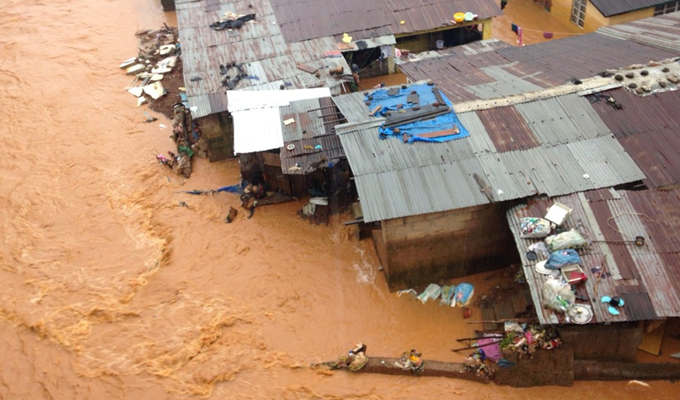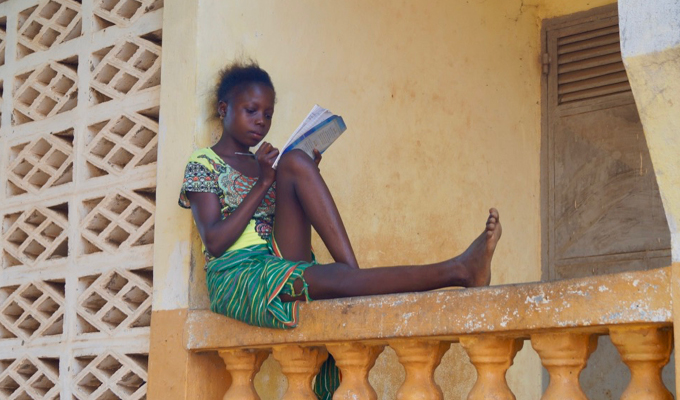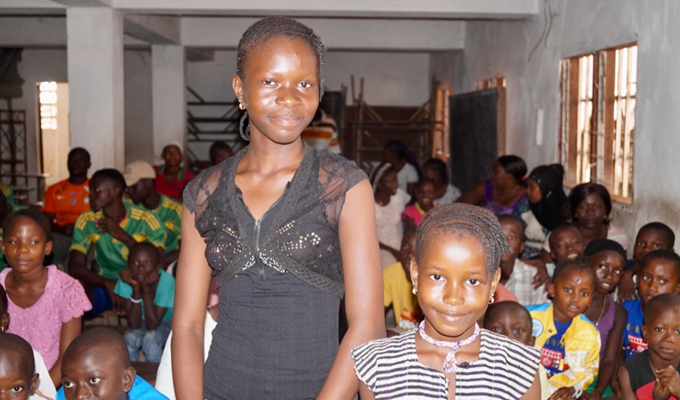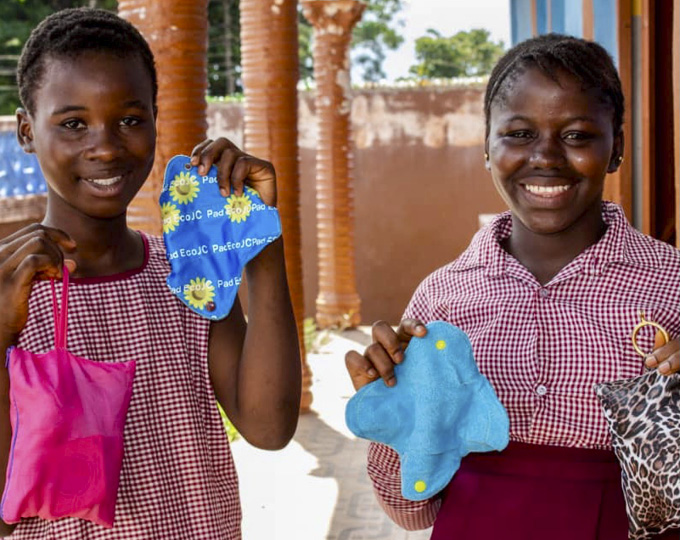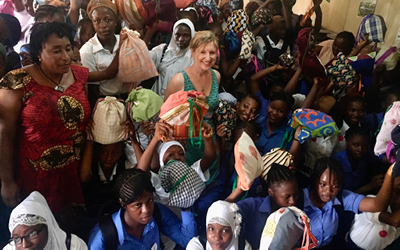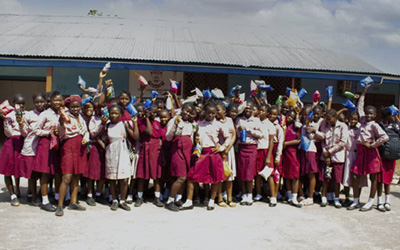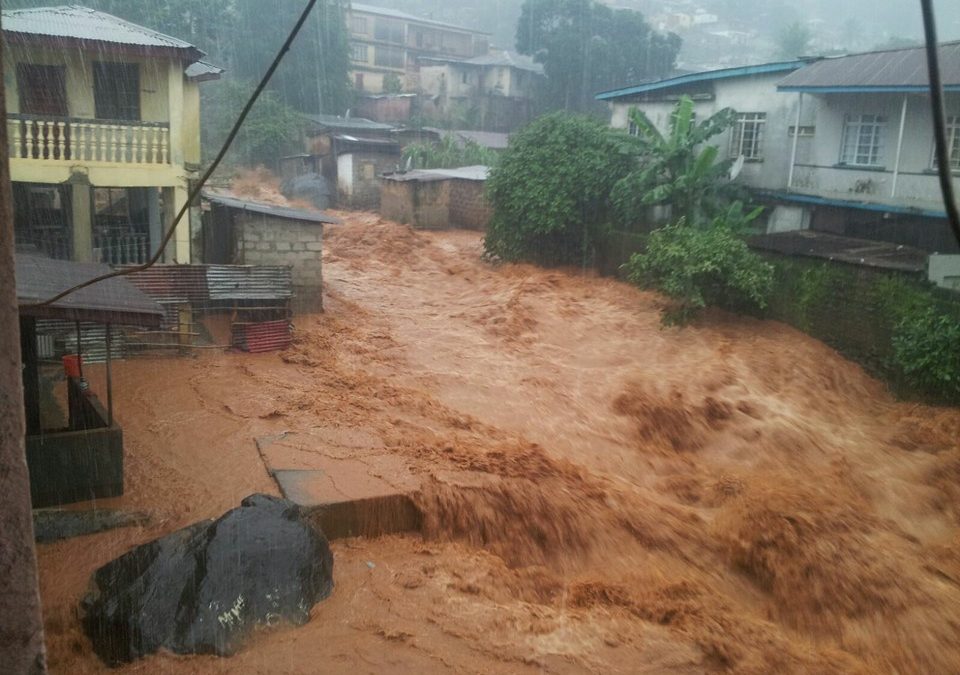
Freetown Landslide
A lot can happen in three years, especially in the eyes of a child. In Freetown, this is an understatement. On the 14 of August 2017 the citizens of Freetown had experienced the impacts of a devastating landslide that left over 1,000 people dead or missing, while also leaving 11,000 people displaced and homeless [2]. The Regent district of Freetown was the area most heavily impacted by the landslides, with people and homes buried alive under mud, rock and rubble. Faud* and Joseph*’s father was working in the Regent district the morning that the landslides occurred and has not been seen since. For Faud* and Joseph*, tragedy struck at such an early age, uncertainty enveloping their young lives as they failed to find their father amidst the mud and rubble.
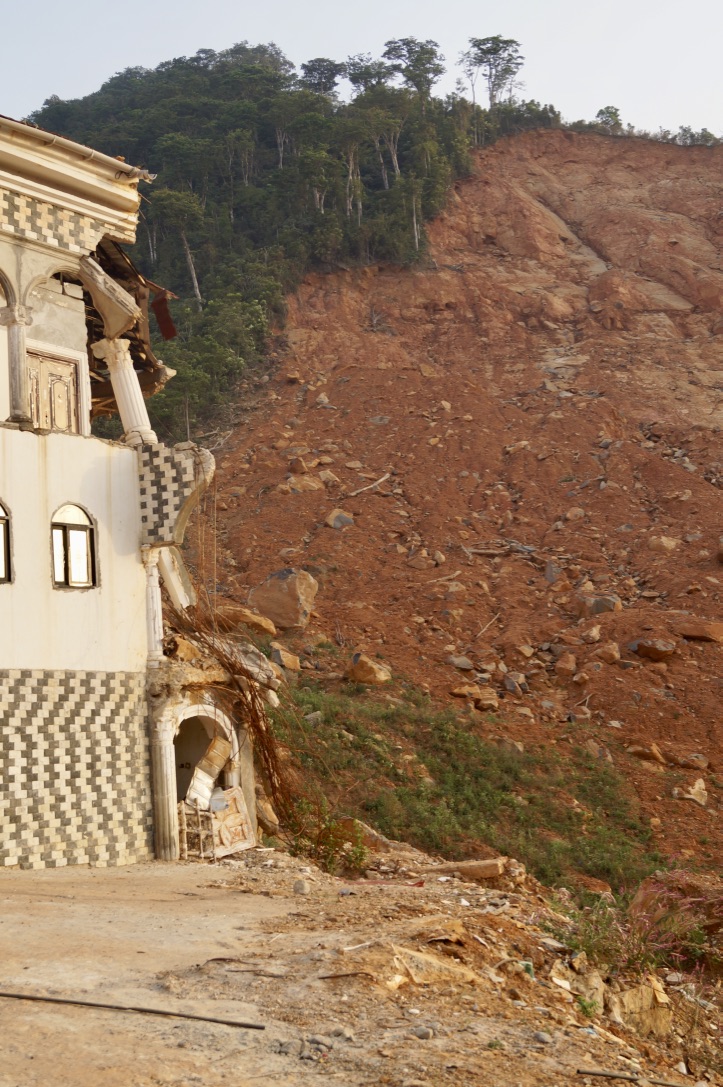
Such an event is unfathomable and tragic; while the effects on individuals, their wellbeing and livelihoods continue to this day. Faud* and Joseph*’s widowed mother has struggled to put food on the table, let alone pay for the boy’s school fees. It is clear that tragedies such as the Freetown landslide affect the poor most disproportionately, but it is unfathomable that in 2020 a family continues to struggle to feed itself and survive.
Unsustainable levels of urbanisation led to massive deforestation which, coupled together, contributed to the devastating landslide in Freetown. Deforestation contributes to landslides directly as it decreases rainfall infiltration and increases debris runoff. It must thus be taken into consideration that Sierra Leone’s rainy season, while the direct cause of the landslide, would have been less likely to happen were informal and hazardous urbanisation, “disturbing the natural ecology and hydrology of the mountain slope,” [3] avoided.
Freetown needs structured urban planning and enforceable legislation against illegal logging and illegal settlement construction. Furthermore, Freetown would benefit from reforestation initiatives. One example of a land restoration initiative could be an increase in agroforestry, which would have the added benefits of curbing climate change and increasing the city’s food security [4].
These initiatives are all the more important in the face of climate change, as there is scientific consensus on the dangers of increased severe weather events, including wetter and more intense rainy seasons. As “poverty and disadvantage are expected to increase in some populations as global warming increases,” [5] the people of Sierra Leone are in danger of more catastrophe and urgently need to prioritise climate resilience and adaptation.
Working on climate change adaptation strategies, including natural disaster prevention, helps to reduce the requirement for rebuilding efforts after natural disasters. So much so that “every $1 spent upfront on prevention strategies and disaster risk management will save the $3 required for rebuilding after an event.” [6] Along with the need to advocate for investments in natural disaster prevention, there is also the need to support the victims of the traumatic 2017 landslide. This is certainly the case when considering vulnerable children such as Faud*.
While Joseph* is being sponsored by a Fig Tree Children supporter, Faud* continues to lack sponsorship. Sponsoring Faud* would make a significant positive impact on his future. Not only would it help to educate him, but it could also lead to Faud* developing the skills necessary to contribute to his

community as it continues to recover from the landslide and develop natural disaster prevention strategies.
* Pseudonyms used
References:
[1] Al Jazeera 2017, ‘Sierra Leone mudslides “kill more than 1,000”’, 28 August, <https://www.aljazeera.com/news/2017/8/28/sierra-leone-mudslides-kill-more-than-1000>.
[2] ACAPS Assessment Capacities Project 2020, ACAPS Anticipatory briefing note: Sierra Leone – Floods – 4 August 2020, <https://reliefweb.int/report/sierra-leone/acaps-anticipatory-briefing-note-sierra-leone-floods-4-august-2020>.
[3] Cui, Y, Cheng, D, Choi, CE, Jin, W, Lei, Y & Kargel, JS 2019, ‘The cost of rapid and haphazard urbanization: lessons learned from the Freetown landslide disaster’, Landslides, vol. 16, no. 6, pp. 1167–1176
[4] Mbow, C, Van Noordwijk, M, Luedeling, E, Neufeldt, H, Minang, PA & Kowero, G 2014, ‘Agroforestry solutions to address food security and climate change challenges in Africa’, Current Opinion in Environmental Sustainability, vol. 6, pp. 61–67.
[5] Allen, M, Babiker, M & Chen, Y 2018, Summary for Policymakers. In: Global Warming of 1.5°C. An IPCC Special Report on the impacts of global warming of 1.5°C above pre-industrial levels and related global greenhouse gas emission pathways, in the context of strengthening the global response to the threat of climate change, sustainable development, and efforts to eradicate poverty, IPCC, <https://www.ipcc.ch/site/assets/uploads/sites/2/2019/05/SR15_SPM_version_report_LR.pdf>.
[6] Bruce, I 2019, ‘A preventable disaster: Landslides and flooding disaster in Freetown, Sierra Leone’, World Bank Blogs, 2 May, <https://blogs.worldbank.org/sustainablecities/preventable-disaster-landslides-and-flooding-disaster-freetown-sierra-leone>.

